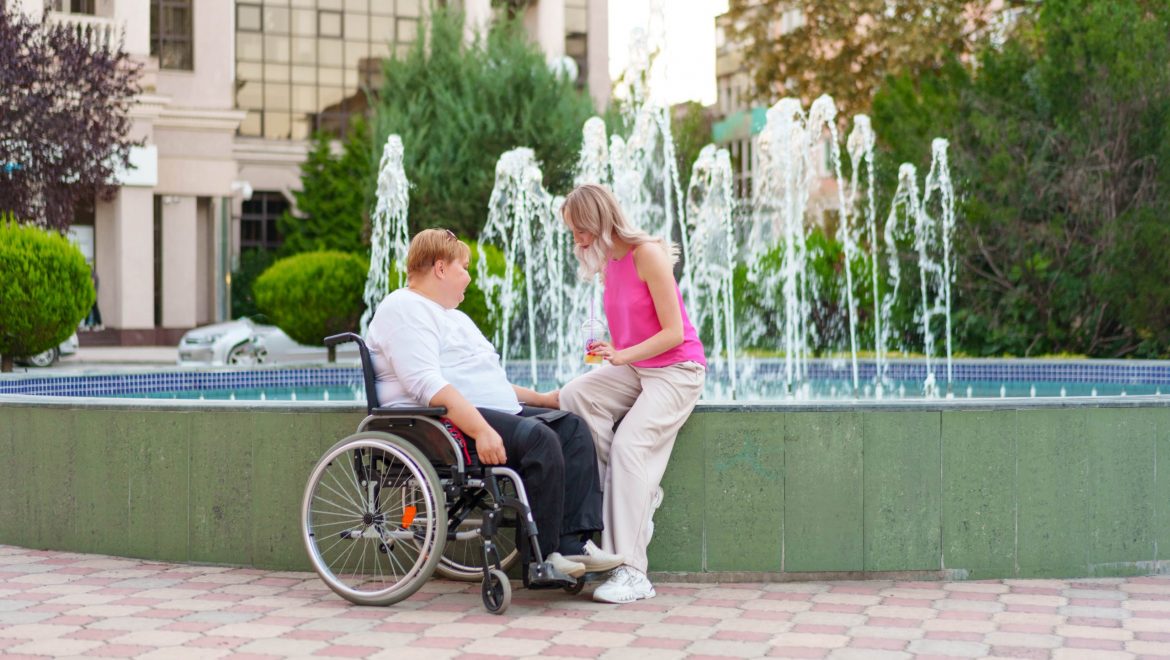Different persons with disabilities have different needs when it comes to care. Some may need more help with daily activities than others, and some may need special equipment or adaptations in order to live as independently as possible. However, there are some general things to keep in mind when caring for someone with a disability.
First and foremost, it is important to treat the person as an individual. Just because someone has a disability does not mean they are not capable of making their own decisions or that they do not have their own preferences and opinions. It is important to get to know the person you are caring for and to understand what they need and want from you.
Second, always communicate clearly with the person you are caring for. This means using language that they will understand, and avoiding jargon or slang. If there is any doubt about what you are saying, ask them to repeat it back to you to make sure they understand.
Third, be patient. Many activities that we take for granted can take much longer for someone with a disability. It is important to be patient and not rush them, as this can lead to frustration on both sides.
Fourth, be prepared for anything. Disabilities can sometimes lead to unexpected behaviors or situations, so it is important to be prepared for anything that might happen. This might mean having a plan in place for how to deal with certain behaviors, or keeping a list of emergency numbers handy in case of an accident or medical emergency.
Finally, always show respect. This includes both verbal and nonverbal communication. Avoid speaking down to the person or using derogatory language, and be sure to use appropriate eye contact and body language. Showing respect also means understanding and accepting the person’s limitations, and not pushing them beyond their comfort zone.
If you keep these things in mind, you will be well on your way to providing quality care for someone with a disability. Remember, each person is unique and will have their own specific needs, so it is important to always tailor your care to the individual. With patience, understanding, and respect, you can make a world of difference in the life of someone with a disability.
Caring Blind Persons
When it comes to caring for blind persons, there is a lot to think about. First and foremost, it is important to remember that they are just like everyone else and should be treated with the same respect and dignity. Here are some tips on how to go about caring for blind persons:
1. Be patient: It may take a blind person longer to do things than someone who can see. For example, it may take them longer to find their way around a new place or figure out how to use a new piece of equipment. It is important to be patient and not rush them.
2. Be aware of their needs: Each blind person is different and will have different needs. It is important to be aware of these needs and try to accommodate them as much as possible. For example, some blind people may need help with tasks such as cooking or cleaning, while others may need assistance with reading or writing.
3. Be respectful: As mentioned before, blind people should be treated with the same respect and dignity as anyone else. This means using proper manners and not making assumptions about what they can or cannot do.
4. Be a good listener: One of the best things you can do for a blind person is to listen to them. This includes really listening – not just waiting for your turn to speak. This way, you can better understand their needs and how to best help them.
5. Be positive: It is important to remain positive when interacting with blind persons. This can be a challenge at times, but it is important to remember that they are just like everyone else and deserve to be treated with respect.
Caring Lame Patients
Caring for a lame patient can be a daunting task, but it is important to remember that these patients need our help and compassion. There are a few things to keep in mind when caring for a lame patient.
First, it is important to keep the patient as comfortable as possible. This means providing them with a soft bedding area and making sure they have access to food and water. It is also important to keep them warm, as they may be more susceptible to cold temperatures.
Second, it is important to keep the wound clean and dry. This means changing the dressing regularly and keeping an eye out for any signs of infection. If the wound does become infected, it is important to seek medical help immediately.
Third, it is important to provide the patient with regular exercise. This helps to keep their muscles strong and can help to prevent further injuries. It is important to start with short walks and gradually increase the distance as the patient becomes stronger.
Finally, it is important to offer emotional support to the patient. This can be a difficult time for them and they may be feeling frustrated or angry. It is important to let them know that you are there for them and that you understand how they are feeling.
If you follow these tips, you will be able to provide the best possible care for your lame patient.
